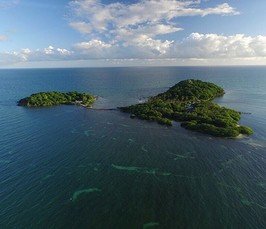Insights into animal lifehistory from over 80 years of the Cayo Santiago macaques
Rado Seminar by James Higham
- Date: Jun 24, 2022
- Time: 10:30 AM - 11:30 AM (Local Time Germany)
- Speaker: James Higham
- Department of Anthropology, New York University
- Location: Hybrid meeting
- Room: Seminar room MPI-AB Bücklestrasse + Online
- Host: Max Planck Institute of Animal Behavior

The primates offer excellent model systems for studying the interface between the biological and the social. In this talk, I focus on our field studies of the rhesus macaques of Cayo Santiago, Puerto Rico. Decades of individual-based demographic data allow us to explore variation in lifehistory, including the impacts of interbirth intervals and infant birth weights on infant survival, and both the development and senescence of reproduction in the same individuals across the lifespan. Our studies leverage behavioral observations, cognitive experiments, physiological measures, genomic and transcriptomic data from blood and tissues, measurements of soft-tissues and skeletons, microbiome samples, and more. I show how long-term integrative study can investigate the biological and the social from two perspectives: bottom-up and top-down. Bottom-up, we ask how variation in the genome and epigenome, via the transcriptome, constructs cellular, tissue- and organ-level biology in individuals, and in turn, how individual-level behaviors structure societies and populations. Top-down, we study how variation in the social environment gets under the skin to impact health and disease. I finish by discussing the Anthropocene, and by demonstrating the top-down effects of climate change-linked natural disasters on rhesus macaque societies, and on individual health via effects on the transcriptome. Combining approaches from behavioral ecology, physiology, quantitative genetics, genomics and transcriptomics, computer vision, and comparative psychology, this talk is part demonstration of the value of integrative research, and part love-letter to long-term field studies.